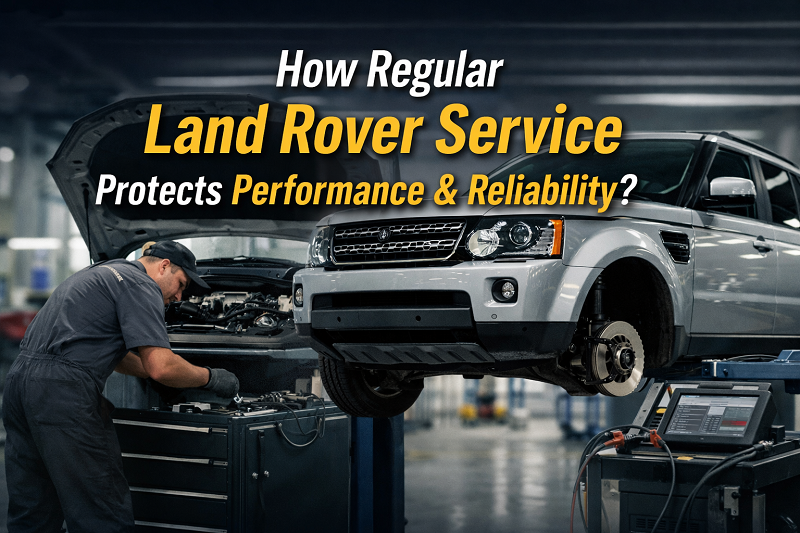Auto Repair Basics: What to Expect When You Visit the Shop
- ameliya lanne
- May 1, 2025
- 5 min read
Updated: May 2, 2025
For many, owning a car is akin to caring for a toddler- it needs constant attention, love, and care. An integral part of this care involves understanding basic car maintenance and mustering the courage to visit an auto repair shop. This experience can often be daunting and intimidating, especially if you're unfamiliar with the technical jargon and the inner workings of a vehicle. But fear not! This guide aims to equip you with the necessary knowledge to understand your car’s needs, communicate effectively with your mechanic, and make the most of your auto repair experience.
Each section of this guide is designed to build your confidence and demonstrate that maintaining your car doesn't have to be complicated. Yes, it’s not just about oil changes and tire rotations. There’s so much more! But with a little patience and effort, you can navigate your way around your car’s needs like a pro.
Let's embark on this journey together, demystifying your auto repair shop experience one step at a time.

Understanding Your Car’s Servicing Needs
Understanding when your car needs a check-up is pivotal to its performance and longevity. Just as we humans need regular health check-ups, our cars too need regular servicing. The types of service your vehicle might need can range from routine maintenance like oil changes and inspections, to urgent repair needs such as brake replacement or engine repair.
Most vehicle manufacturers provide a list of recommended servicing intervals in the owner’s manual. These recommendations are crucial as they are based on average driving conditions and help you plan your visits to the service center. However, it is worth noting that driving habits, climate conditions, and the type of vehicle can significantly affect these intervals.
Understanding your vehicle's servicing needs will not only ensure it runs smoothly but also minimize costly repair work in the future. Consider it a preventive measure that keeps larger problems at bay, similar to how regular exercise and a balanced diet contribute to our overall health.
Decoding The Language of Mechanics
Walking into an auto service center can feel like stepping into a foreign land where everyone speaks a different language. If you're not familiar with the terminology, trying to communicate your vehicle's issues could feel overwhelming.
There are common terms that mechanics often use, which you should familiarize yourself with. For instance, terms like brake pads, alternator, serpentine belt, coolant, and transmission are commonly used when talking about car parts. Being aware of such terms can empower you to engage more effectively with your mechanic.
So, the next time your mechanic tells you your brake pads are worn out, or the alternator needs replacement, don't panic! Grasping what these components do can clear up any miscommunication, making your auto repair shop experience much less intimidating.
Trustworthy Mechanic: How to Find One
A trustworthy mechanic is not just someone who understands cars but also values transparency and customer service. They will be upfront about costs, timelines, and the extent of repairs needed, avoiding any unpleasant surprises for the car owner.
Some clues to trustworthiness include certifications from professional organizations, years of experience, positive customer testimonials, and transparency in pricing. A certified mechanic will likely have undergone significant training, thereby demonstrating their seriousness about their craft.
Remember, the vital point is not to just find a mechanic but to find one that you, as a car owner, can trust. They will be your go-to resource for all car-related concerns, and you want to feel confident about leaving your vehicle in their hands.

Before Your Visit: What to Prepare
Coming prepared to your auto shop visit will not only save you time but will also allow the mechanic to accurately diagnose your car’s problems. This process begins with documenting any issues. Whether it’s a strange grinding noise or the car pulling to one side, write it down. These symptoms could hold valuable information to understanding the root cause of an issue.
Additionally, check if your car’s warranty covers the issue you’re dealing with. A warranty can either be offered by the manufacturer or a third-party provider and could save you significant repair costs. Also, it's essential to schedule appointments ahead of time to ensure that the mechanics can dedicate their focus to your vehicle’s needs.
During Your Visit: Know What to Ask
Just as we question our doctors about the proposed treatment plan, we should also question our mechanics about the recommended repairs. Don’t hesitate to ask for an explanation if you don't understand something. Key questions may include “What exactly is wrong?”, “How urgent is the repair?”, “What will it cost?”, “Is there a warranty on the repair?” and “What happens if I don’t get it fixed?”
This line of inquiry not only helps you understand the extent of the problem, but it also communicates to the mechanic your level of interest and engagement, prompting them to offer complete transparency on your vehicle's state.
After Your Visit: Post Repair Checklist
What follows a visit to the auto repair shop is equally important as preparing for it. As a rule of thumb, always thorsoughly inspect your vehicle post-repair for cleanliness, and check the repairs made. Additionally, scrutinize the invoice for accuracy. Make sure you understand all charges and that they align with what was discussed before the repairs commenced.
Also, take your vehicle for a spin to check if the problem has been fixed. If the issue persists or if something doesn't feel right, promptly bring it to your mechanic’s attention. Finally, provide feedback about your repair shop experience. This could help the auto shop to improve their customer service, or other customers to make an informed decision about where to get their own vehicles serviced.
Common Car Problems and Their Symptoms
Recognizing common car problems can potentially save you from costly repairs in the future. Some of these problems might include engine overheating, flat tires, failing brakes, or a malfunctioning battery.
For instance, if you see the temperature gauge reading higher than normal, smell a sweet, syrupy scent, or see steam originating from under the hood, your engine might be overheating. The causes for this can range from a leaking cooling system to a failed water pump.
Thus, equipping yourself with a basic understanding of common car issues can keep you prepared for such instances and help you explain the problem more accurately to your mechanic.
Routine At-home Car Maintenance Tips
Car maintenance is an ongoing process and doesn’t end at the auto repair shop. There are a variety of activities you can carry out at home that require minimal effort but yield significant results in prolonging the life of your vehicle.
These can be as simple as routinely checking your tire pressure, regularly changing your oil, inspecting your battery, and maintaining appropriate fluid levels. Remember, the better you take care of your car, the longer it will serve you faithfully.
Understanding Car Parts and Their Lifespan
Every part of your car has a certain lifespan, and knowing these can help you better plan for replacements. For example, brake pads usually last between 30,000 to 70,000 miles, batteries typically need replacing every 3-5 years. Tires, depending on their quality and how you drive, may last anywhere from 25,000 to 50,000 miles.
Listed life spans are averages, and the actual longevity of your car parts could vary based on several factors. Understanding these timeframes will enable you to plan ahead, reducing the chances of getting caught off guard by a failed part.
Conclusion
Knowledge is power, and in the context of car maintenance, it could mean the difference between a carefree ride and being stranded on a highway. Spend some time understanding your vehicle's needs, get your hands a little bit dirty, and rest easy knowing you’ve taken a step towards becoming more self-reliant.
Remember that your car is more than just a machine – it’s an asset that requires careful and regular maintenance. Here’s to a better, more empowered auto repair shop experience!
Kirrawee Automotive Services
1B Yalgar Road, Kirrawee, NSW 2232






Comments